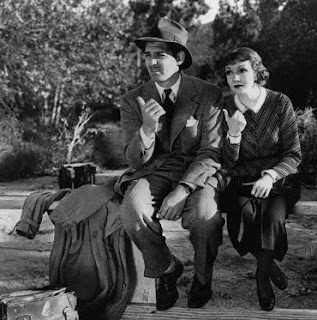HMRC And The Lost Crusade
When the Inland Revenue and Customs and Excise came together as HM Revenue and Customs in 2005, it had a solid backbone of officers on the Law Enforcement side (what people generally thought of as Customs officers) backed up by many more International Trade specialists. From the perspective of Cream Team Duty, the Law Enforcement officers checked how many scones you had in your suitcase, while the International Trade officers checked that you'd declared the correct Tariff code for your clotted cream imports.
Then, in July 2007, Gordon Brown had a vision of anyone entering the country being met by, "a single, uniformed checkpoint for passport control and customs." In early 2008, those Customs staff were shunted off to the new UK Border Agency. For both sides, there was ambiguity as to who was responsible for what. HMRC still owned Customs policy, but the UKBA was responsible for enforcing it. HMRC retained the International Trade auditors, but UKBA caught the smugglers*. Where did one end and the other begin? Both sides lost out.
(*or some smugglers. since UKBA was formed with the headline-grabbing intent of persecuting illegal immigrants.)
For the former Customs staff, there was the humiliation of being forced to wear a baggy jumpsuit that looked like something the Belgian government had dumped in an army surplus sale. While HMRC, became distanced from the idea that they were there for more than just collecting money - that protection of society was just as important.
In some ways, Customs and Excise had been like a local council. It took money in , but it also did things that didn't generate any revenue. Like maintaining a park. Or catching drug smugglers. Or running a school. Or educating people how to get their taxes right, so you didn't have to hit them with an assessment three years down the road.
There also seemed to be a fundamentally different philosophy between HM Customs and Excise and the Pukka Sahibs of the Inland Revenue who believed that most people were generally honest and wanted to pay their taxes. The HMCE view was - not that everyone is bent - but that people will behave differently if they don't think they're being watched (and that most of us have a tendency to stick our heads in the sand and mess things up). While the Inland Revenue had always had a Special Compliance Office to catch the "bad apples", they along with the HMCE drugs investigators had been shunted off to the Serious Organised Crime Agency in 2005.
It's not surprising that the Inland Revenue recipe prevailed in HM Customs and Excise, given how sweetly it blended with the base spirit of cutting staff and offices - after all, if most people wanted to pay their taxes, you needed less people to collect them.
To return to my brilliant analogy of a couple of paragraphs above - over time, HM Revenue and Customs got less like a local authority and more like a lazy debt collector, with a focus on how much money it could bring in for the least effort. Some nasty people have suggested that when you concentrate on collecting money, you lose interest in things which don't bring in money - like customer service. HMRC would disagree because - as the corporate answer goes - "We Walk In The Shoes Of The Customer."
To pull this back from the rants of a bitter old man to the subject of International Trade. HMRC was more aware than most (certainly the voters) that a lot of EU business which previously ran free of controls would become International Trade subject to control when we left the EU. HMRC even took on additional staff to deal with the work that would generate.
Sadly, as a result of the Brexit Hokey Cokey negotiations, the new staff were treated (as someone put it) like the Duke of York's Army. They were led up to the top of the hill ready to deal with International Trade calls. And when it was announced that we weren't leaving Europe yet, they marched back down the hill to be redeployed onto one of the many other work areas that were in backlog due to staff being laid off under the Building Our Future programme. Not good for morale, or a sense of self worth, but then the prevailing philosophy is that staff don't actually need to know anything. They can answer any question by referring to an automated crib sheet.
HM Revenue and Customs has always had a solid strata of officers with experience and expertise in International Trade. People who spent years getting their heads round the mysteries of the Tariff and learning how to kick CHIEF when it wasn't working. Whether there will be enough of them to deal with the demands of post-Brexit Britain, once the COVID restrictions are lifted is the killer question.




